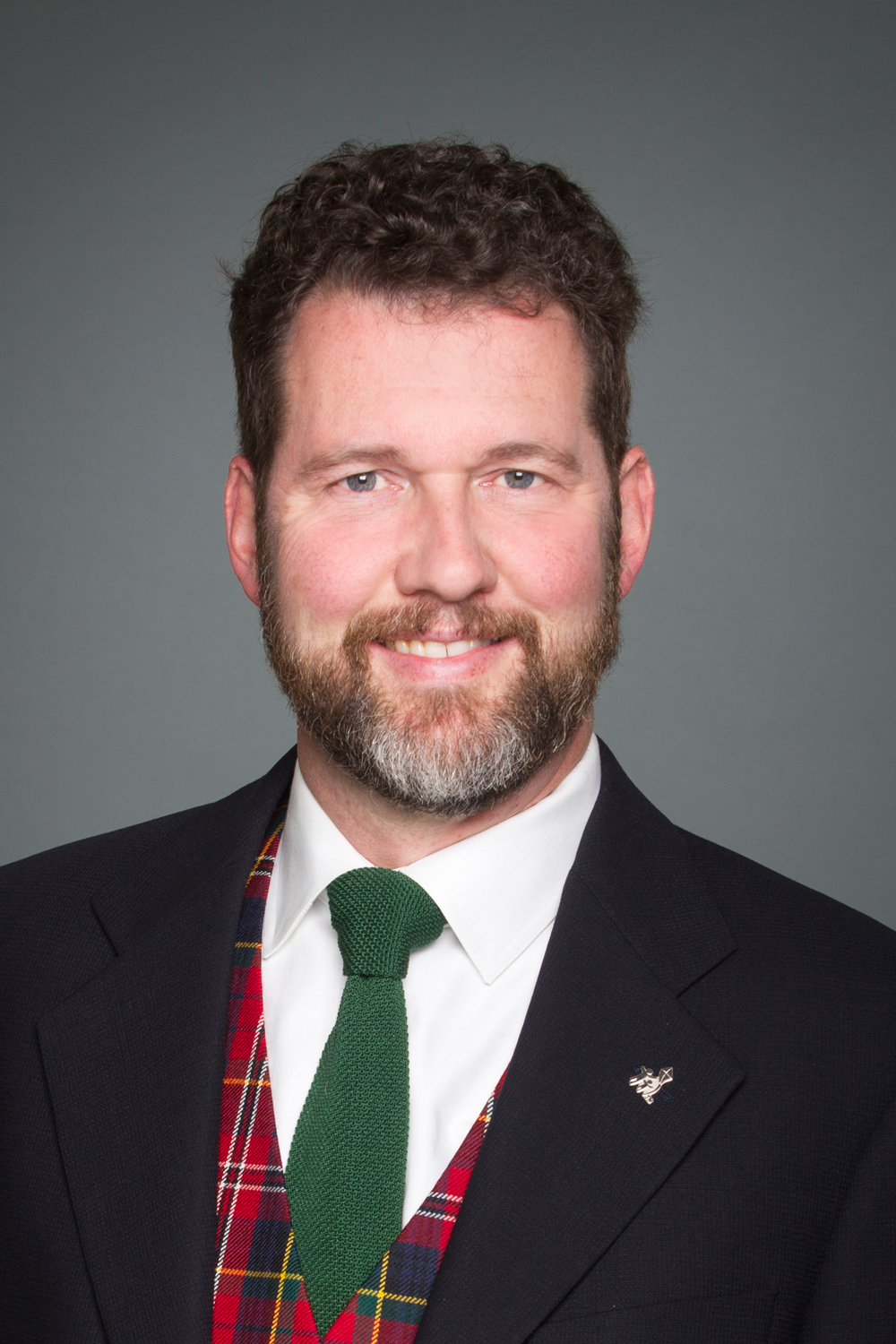This profile was part of the Faculty of Public Affairs’ 75 for the 75th series, which highlighted 75 notable alumni in FPA in honour of Carleton University’s 75th anniversary. These stories were published in 2016 and 2017.
Member of Parliament (Lanark-Frontenac-Kingston)
Bachelor of Arts, Political Science (’85)

Scott Reid’s early career plans involved being a novelist.
“I started a novel when I was 16, working as a farm labourer during the day and writing at night,” he recalls with a chuckle. “But I didn’t have any talent writing fiction. No one peaks at 16.”
But he continued writing—op-eds in national newspapers, as well as two books—with the primary objective of influencing public policy.
“I wanted to change policy, so I tried doing different things,” said Mr. Reid, who spent three years as senior researcher for the Reform Party caucus, as well as an advisor to party leader Preston Manning. “I finally concluded that the people who have the most influence over policy were the elected officials.”
Mr. Reid successfully ran for Parliament in 2000 at the age of 36 as a member of the Canadian Alliance. He quickly established his niche as a policy aficionado.
“Most people who get elected have a casual interest in policy, so I thought I would focus intently on it and on specific areas of expertise,” he explains.
He focuses on three areas in particular: the Charter of Rights and Freedoms, Canada’s official bilingualism policy and international human rights. The latter was honed during his eight-year stint as chair of the International Human Rights Subcommittee of the House Standing Committee on Foreign Affairs.
“There’s no better education than serving on a parliamentary committee year after year. We covered topics ranging from the treatment of gays in Iran, the persecution of people with albinism in Uganda and organ harvesting in China,” he explains. “There are high profile witnesses, former United Nations officials and former justices of the Supreme Court. We also have constant access to analysts with PhDs in this area.”
In 2002, Mr. Reid drafted a motion that called upon Prime Minister Jean Chrétien to raise the issue of the persecution of Falun Gong practitioners with Chinese leaders. The motion was adopted and is credited for the release of a number of Falun Gong prisoners.
Mr. Reid’s passion for democratic governance has also prompted him to adopt an unusual approach to decision-making in Canada: local referendums.
“My job as an MP is to reflect my constituents’ views so I let them decide on issues via a direct vote,” he explains. “They tell me how to vote, and I do it.”
Mr. Reid has called eight referendums in his time on the Hill, on subjects ranging from the Species at Risk Act to the Anti-terrorism Act of 2015. In both cases, he broke ranks with his party.
“I ask if I should vote for the bill and put in arguments for and against from the advocates on either side,” he explains. “Sometimes my constituents surprise me, as with the assisted dying legislation. They voted two-thirds in favour. They wouldn’t have been able to tell me that if I had not asked them.”
Mr. Reid says he has fond memories of his time at Carleton, especially his classes with Political Science Professor Kenneth McRae and historian Carter Elwood.
“They were very thorough scholars who taught me to gather all of your information before you jump to conclusions,” recalls Mr. Reid, who went on to earn an M.A. in Russian History. “So when I read something in the newspaper, I want to see the source and then I want to see the data.”
His advice for budding politicians is cautionary: “Be aware that this kind of career can end very unexpectedly, so make sure you have a fallback.”
Thursday, June 15, 2017 in #FPA75, Career Paths, Department of Political Science
Share: Twitter, Facebook



